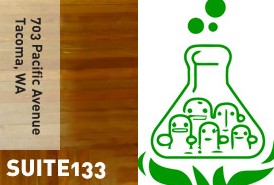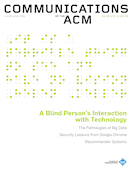 In October of 2009 Craig Deitering, a senior in the Computer Engineering and Systems (CES) program at the Institute of Technology modified a battery powered car for kids so that it could be “driven” by children with limited motor abilities. The project was a success but after the car was used by the kids at Puyallup’s Good Samaritan hospital, several needed improvements were identified.
In October of 2009 Craig Deitering, a senior in the Computer Engineering and Systems (CES) program at the Institute of Technology modified a battery powered car for kids so that it could be “driven” by children with limited motor abilities. The project was a success but after the car was used by the kids at Puyallup’s Good Samaritan hospital, several needed improvements were identified. It was decided that the engineering students in this last academic year’s Devices and Controls class would implement these improvements as a team project.
The project leader for the class team, student Brian Gosch, described the improvements that the team was planning to make to the battery powered car (called the BOSS cart) to Dr. Steve Shores. Dr Shores agreed with the approach. He also went on to list a number of potential senior projects that the students could work on that would help the children's rehabilitation center at the hospital.
 Seniors from the Computer Engineering & Systems program at UW Tacoma visited the Children’s Therapy Unit (CTU) at Puyallup’s Good Samaritan hospital to get a first-hand look at how the staff at the unit creates games and tools to help kids with special needs. Steve Shores, who is a CTU therapist there and head of the Assistive Technology Program, demonstrated many of the devices his group has made or modified to help the children.
Seniors from the Computer Engineering & Systems program at UW Tacoma visited the Children’s Therapy Unit (CTU) at Puyallup’s Good Samaritan hospital to get a first-hand look at how the staff at the unit creates games and tools to help kids with special needs. Steve Shores, who is a CTU therapist there and head of the Assistive Technology Program, demonstrated many of the devices his group has made or modified to help the children. In the latter part of May, nine students Jessie Fortier, Aakanksha Gaur, Brandon Nadeau, Brian Gosch, Eun Ju Lee, Frank Le, Kris Knabel, Krisnil Gounder and Teddy Doll finished the enhancements and modifications to a BOSS cart for Multicare's Good Samaritan Children's Therapy Unit.
 Working with faculty sponsor Robert Gutmann, PhD the student team made the electric vehicle more flexible and targeted for working with children in need of rehabilitation services and treatment. It was Bob Gutmann, the instructor for the class, who made the initial contact with Steve Shores at a CTU fundraising event. Gutmann’s wife, Linda Gutmann, is on the Board of Directors at the hospital and is very familiar with the achievements and needs of the CTU.
Working with faculty sponsor Robert Gutmann, PhD the student team made the electric vehicle more flexible and targeted for working with children in need of rehabilitation services and treatment. It was Bob Gutmann, the instructor for the class, who made the initial contact with Steve Shores at a CTU fundraising event. Gutmann’s wife, Linda Gutmann, is on the Board of Directors at the hospital and is very familiar with the achievements and needs of the CTU. With the success of the modifications and the delivery of the new, improved cart, Dr. Gutmann and Dr. Larry Wear, Associate Director of the Institute of Technology at UWT, hope to expand the involvement of CES students with the CTU and get more students to focus their senior capstone design experience on projects that will benefit the CTU.
With the success of the modifications and the delivery of the new, improved cart, Dr. Gutmann and Dr. Larry Wear, Associate Director of the Institute of Technology at UWT, hope to expand the involvement of CES students with the CTU and get more students to focus their senior capstone design experience on projects that will benefit the CTU.







